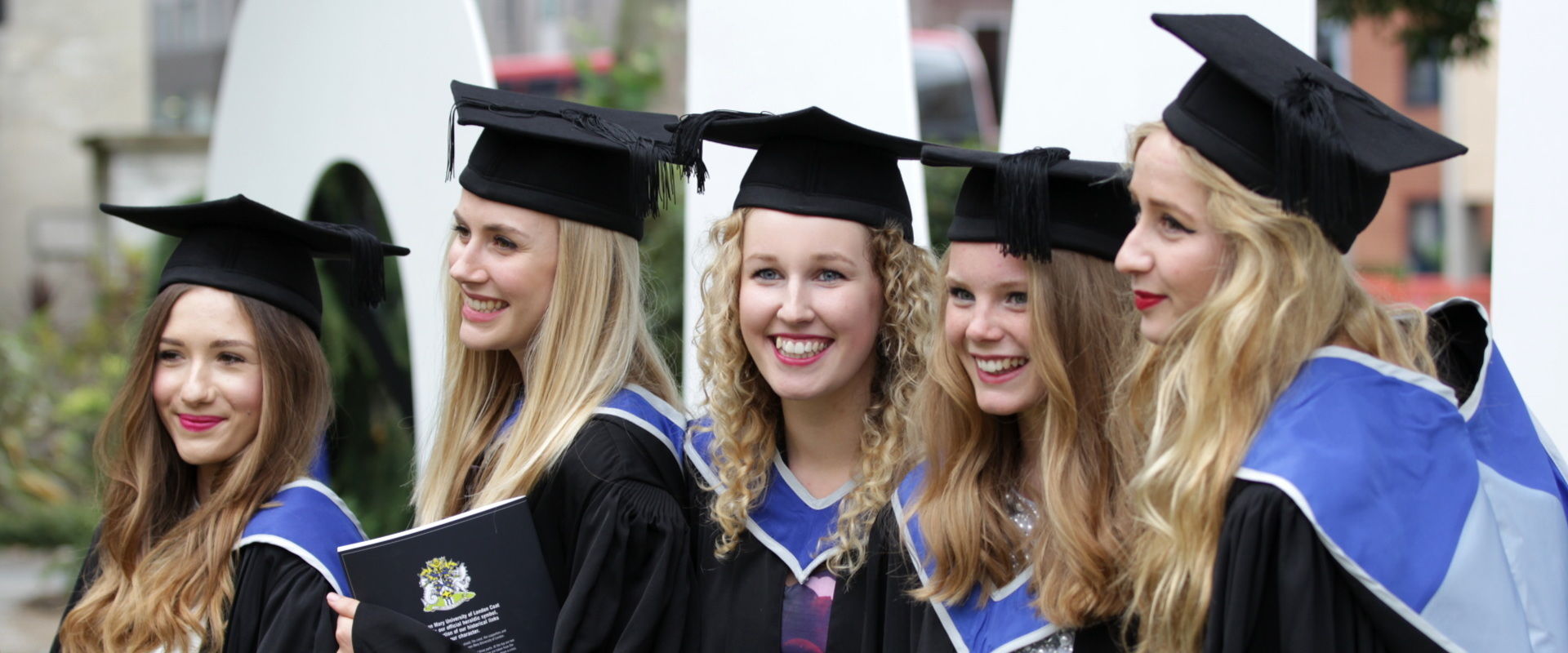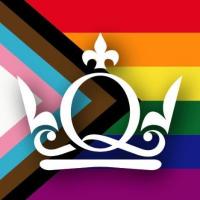MSc in Biomedical Science (Medical Microbiology)
Barts and the London School of Medicine and Dentistry, Queen Mary University of London, has a long history of providing high quality postgraduate education for clinicians and scientists working in the National Health Service (NHS), Public Health England (PHE), and industry. The aim of this programme is to prepare you for the next stage of your career, whether pursuing further research or professional study, or entering employment in the field of Biomedical Science. The course can also enhance the career prospects of those aspiring to middle and senior management positions within the NHS Pathology Service and commercial sector.
The course is accredited by the Institute of Biomedical Science (IBMS). Please note accreditation of a postgraduate degree course by the IBMS is not the same as accreditation of an undergraduate degree for HCPC State Registration. Completion of this postgraduate degree will not fulfil the education criteria for State Registration as a Biomedical Scientist with the Health and Care Professionals Council (HCPC). Please check with the appropriate bodies that the course you plan to follow will be suitable for any professional accreditation you may require.
Students on this course will share many of the formal teaching and practical sessions with students on the MSc Clinical Microbiology and MSc Clinical Science (Infection Science) courses, allowing inter-professional learning, but each course has its' own unique additional teaching, electronic learning resources and assessments.
The course aims to promote teaching and learning enriched by original scholarship and scientific research; encouraging students to become independent learners. Formal teaching comprises lectures, workshops, practical classes and demonstrations. Many of the lecturers are specialists in their field and are invited from many institutions within the UK.
The practical classes are an important component of the course and are designed to give the students hands-on experience, particularly in basic clinical microbiology. Students are encouraged to relate current practices in their workplace to their studies, to discuss and critically evaluate these techniques with their colleagues in light of their formal teaching. The practical classes are taught in the purpose built teaching laboratory, which is well equipped with all necessary materials and is based on a routine clinical microbiology laboratory.
In addition to the formal face to face teaching, students use online learning materials in the University's electronic learning environment (QMplus). Self-directed learning, by reading and reviewing literature to supplement the lectures, is essential and students are encouraged to use the library (both electronic and onsite) and computer facilities within the University. All students have off site access to the library and the electronic learning environment.
This programme will provide:
- a systematic understanding of knowledge, and a critical awareness of current problems and / or new insights, much of which is at, or informed by, the forefront of medical microbiology and professional practice,
- a comprehensive understanding of techniques applicable to their own research or advanced scholarship,
- the opportunity to demonstrate originality in the application of knowledge, together with a practical understanding of how established techniques of research and enquiry are used to create and interpret knowledge in medical microbiology,
- a conceptual understanding that enables the student to evaluate critically current research and advanced scholarship in medical microbiology,
- the ability to evaluate methodologies and develop critiques of them and, where appropriate, to propose new hypotheses.
Campus Information
Whitechapel Campus
It encompasses Barts and The London School of Medicine and Dentistry, the Whitechapel Medical Library, the award-winning Blizard Institute of Cell and Molecular Science, and the Royal London Hospital.
Intakes
- Sep
Application Processing Time in Days: 30
Application Process
Minimum English Language Requirements
| English Level Description | IELTS (1.0 -9.0) | TOEFL IBT (0-120) | TOEFL CBT (0-300) | PTE (10-90) | |
|---|---|---|---|---|---|
| Expert | 9 | 120 | 297-300 | 86-90 | |
| Very Good | 8.5 | 115-119 | 280-293 | 83-86 | |
| Very Good | 8 | 110-114 | 270-280 | 79-83 | |
| Good | 7.5 | 102-109 | 253-267 | 73-79 | |
| Good | 7 | 94-101 | 240-253 | 65-73 | |
| Competent | 6.5 | 79-93 | 213-233 | 58-65 | |
| Competent | 6 | 60-78 | 170-210 | 50-58 | |
| Modest | 5.5 | 46-59 | 133-210 | 43-50 | |
| Modest | 5 | 35-45 | 107-133 | 36-43 | |
| Limited | 4 | 32-34 | 97-103 | 30-36 | |
| Extremely Limited | < 4 | < 31 | < 93 | < 30 |
Job Opportunity Potential
Careers support
The services we offer to support your career development include:
- one-to-one appointments to help you with your career direction, give feedback on job applications, offer insight into the job market and prepare you for interviews
- workshops to support your career development and job hunting
- employer events attracting recruiters and alumni from a rich range of sectors
- support for finding internships and parttime jobs
- specialist careers consultants to support PhD students through appointments, events and workshops.
Support for international students
- We offer a programme of support for international students throughout the year, which involves talks on how to find graduate work in the UK and an International Students Week featuring external speakers.
- Students can search for jobs across the world with our international jobs database, as well as browse our guides on getting work in particular markets.
- All students have access to a rich programme of employer events and career development workshops, running across the University year.
Support after graduation
Our careers support continues after you leave Queen Mary.
- All graduates have access to our Careers and Enterprise services for two years after graduation.
- You can have -
free one-to-one appointments in person, over the phone or via Skype
Attend our employer events
use our online psychometric testing and mock-interview software
access our jobs board – over 3,000 employers uploaded vacancies in 2018/19.
Queen Mary graduates have gone on to work in these organisations:
• Accenture • Allen & Overy • Arup • AstraZeneca • Baker McKenzie • Barts Health NHS Trust • European Central Bank • Fintech Innovation Lab • Google • HSBC • IBM • Institute of Cancer Research • Institute of Dentistry • J.P. Morgan • Jaguar Land Rover • Lloyds Banking Group • Natural History Museum • Penguin • PwC • Queen Mary • Save the Children • Shell • Stella McCartney • Thales • Thomson Reuters • World Economic Forum ...and many more!
Careers success
93% of our postgraduates are in work and/or study six months after graduation. 84% of those in work/study are in highly skilled work/study (most recent DLHE Survey of 16/17 leavers)*
Enterprise support
Many students and graduates across Queen Mary start or grow their own business or social venture each year. In 2018/19, Queen Mary gave out £45,000 in seed funding to help students start new, or grow existing businesse
PSW Opportunity
- 2 Years PSW is applicable after the course completing (Bachelors level or above).
Admission Requirement / Eligibility Criteria
Degree requirements
- A 2:1 or above at undergraduate level in Biomedical Science.
India
We normally consider the following qualifications for entry to our postgraduate taught programmes: Bachelor Degree (minimum 3 years) from selected institutions.
- UK 1st class degree: 70% to 80%
- UK 2:1 degree: 60% to 70%
- UK 2:2 degree: 50% to 60%
Offer conditions will vary depending on the institution you are applying from. For some institutions/degrees we will ask for different grades to above, so this is only a guide.
- Course Type: Full Time
- Course Level: Masters/PG Degree
- Duration: 01 Year
-
Total Tuition Fee:
23950 GBP
Annual Cost of Living: 12006 GBP
Application Fee: N/A
Similar Programs
- Global Public Health MSc at Queen Mary University of London
- Biotechnology and Synthetic Biology MSc at Queen Mary University of London
- Data Science and Artificial Intelligence (Conversion Programme) MSc at Queen Mary University of London
- Water and Environmental Management MSc at Queen Mary University of London
- Theoretical Physics MSc at Queen Mary University of London
- M.Sc Trauma Sciences Online at Queen Mary University of London

